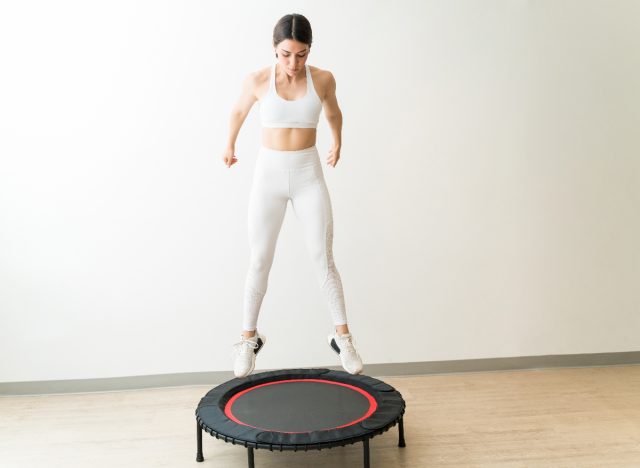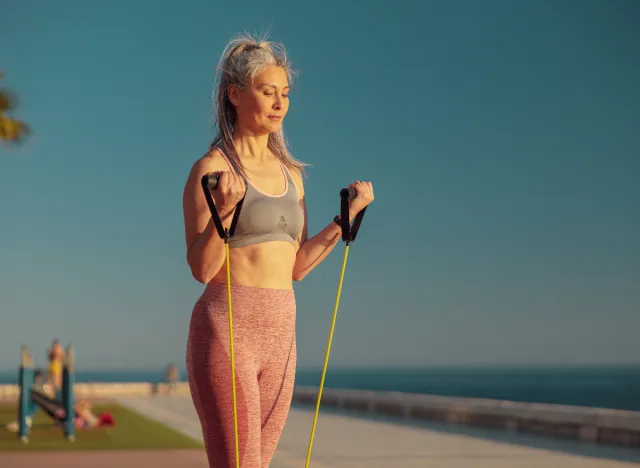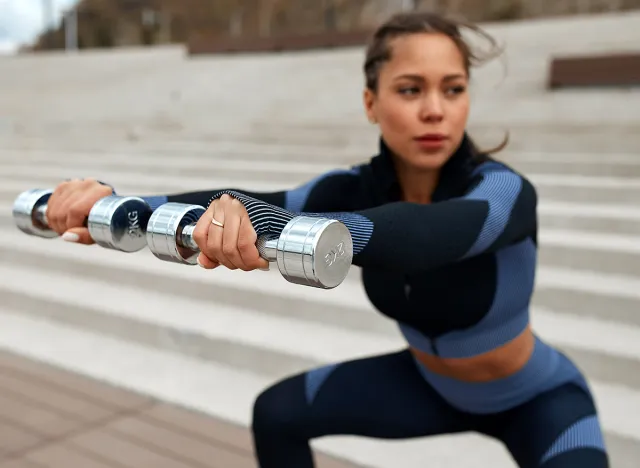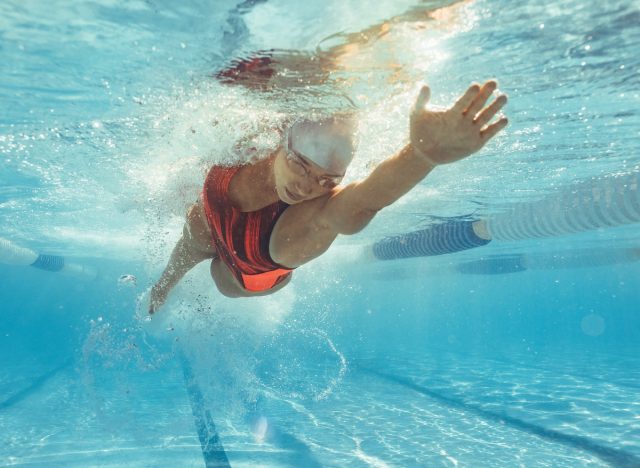Losing weight doesn’t have to mean performing super intense workouts. Low-impact exercise provides a gentle, joint-friendly approach to your weight-loss efforts while still delivering results. That’s why we spoke with fitness experts who reveal the five best low-impact workouts for weight loss that are effective at torching calories and boosting your fitness.
“As a fitness professional, one of the most frequent questions I get asked is: What are the best low-impact workouts for getting fit without putting too much stress on your joints? Whether you’re recovering from an injury, want to protect your joints, or just prefer gentler exercises, low-impact workouts can still give you an effective, full-body workout to help you lose weight,” explains Michael Cummings, director of education at BlazePod.
Now, let’s explore what experts have to say about the five best low-impact workouts for weight loss.
The Best Low-Impact Workouts for Weight Loss:
Rebounding


Rebounding involves bouncing on a mini trampoline, also called a rebounder. It’s an incredibly fun, productive, low-impact workout. The trampoline’s surface absorbs much of the impact that would otherwise place excess stress on your joints in exercises like jumping or running on a hard surface.
“Rebounding works your entire body, from the core to the legs, arms, and glutes. It’s fantastic for improving cardiovascular fitness, toning muscles, and burning calories,” explains Cummings. “In fact, some estimates suggest that rebounding can burn as many calories as running at a moderate pace—but with far less strain on your body.”
Whether you’re a total beginner or more advanced at rebounding, there are plenty of exercises you can do, including simple bounces to more complex workouts that feature lunges, squats, and jumping jacks.
Elastic Resistance (Resistance Bands)


Elastic resistance, aka training with resistance bands, is a versatile, low-impact workout that’s gentle on the joints and ideal for sculpting your muscles and improving body composition.
“Unlike heavy weights, which can cause strain when improperly used, resistance bands provide a smooth, controlled range of motion,” says Cummings. “Resistance bands offer a gradual increase in tension as they are stretched, which minimizes the risk of swinging a dead weight. [In addition,] the bands keep tension on the muscles throughout the entire movement, which enhances muscle engagement and improves both endurance and strength.”
Ashtanga / Vinyasa Yoga


Yoga is an excellent, low-impact workout. “Ashtanga yoga (a more vigorous type of yoga) and vinyasa yoga (a more fluid, flowing style) both involve linking movement with breath to create a meditative, yet full-body workout,” explains Cummings.
Combining deep breathing with a continual flow of poses helps burn fat and build stamina, strength, and flexibility. “The benefit of ashtanga and vinyasa is that they build functional strength without putting undue stress on the joints,” Cummings adds. “These practices involve bodyweight exercises that target multiple muscle groups and engage muscle, mind, and the nervous system.”
Weight Lifting


Any form of load-bearing exercise helps melt fat and build muscle. You can utilize weight machines or free weights such as barbells, kettlebells, and dumbbells to perform these exercises.
“I recommend targeting the major muscle groups, including [the] legs, back, glutes, chest, arms, and abs,” explains Meggan Berg, CPT and studio leader at Life Time Reston. “A basic routine could include three sets of eight to 12 reps to start and one minute [of] rest between. Specific moves I recommend are squats (any variation), deadlifts, alternating lunges (forward or backward), pushups or bench presses, bent-over rows, lat pulls down, biceps curls, triceps dips or kickbacks, and shoulder presses. These movements will equate to a well-balanced routine. Not all need to be performed in one day; they can be broken up.”
Water Workouts


Grab your swimsuit and get ready to hit the water. Swimming and deep-water running are great low-impact workouts for weight loss. The resistance from the drag force of the water challenges your body while burning calories.
“Swimming strengthens your back, core, legs, [and] shoulders and is also very scalable, so you have the ability to control the intensity by adjusting your speed, distance, and stroke style,” says Berg. “If you’re new to water, I recommend starting slow and short and building as endurance strengthens. Deep-water running and swimming help to increase stamina and strength without the risk of injury.”


